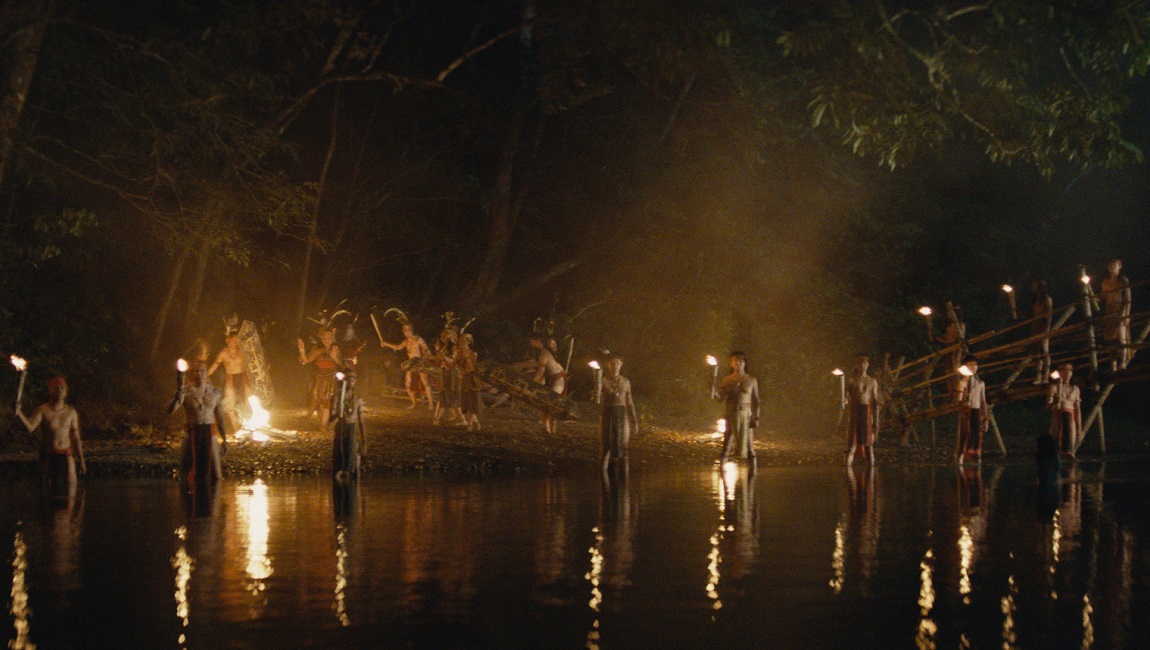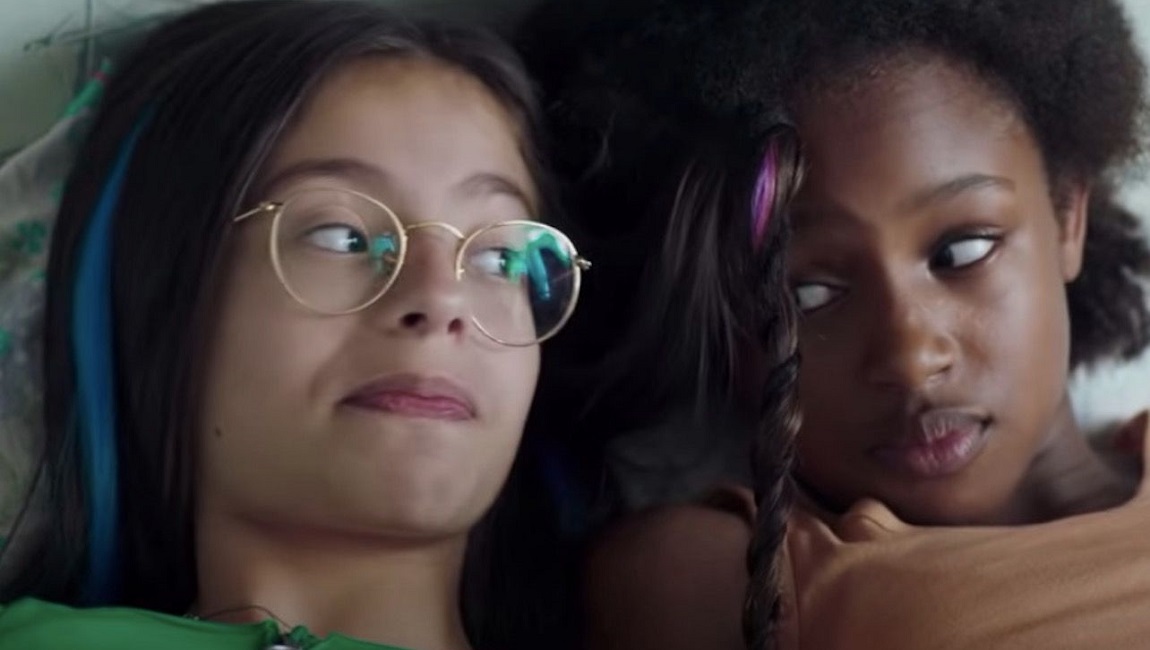The Black Phone establishes a new high water mark for masked killer horror, singular and effective in its eerie details even if a bit familiar in its broader strokes.
Longtime horror collaborators Scott Derrickson and C. Robert Cargill mark their return from the MCU with a bleak, Americana-infused dose of anti-nostalgia in the form of The Black Phone. Adapted from Joe Hill’s short story of the same name, The Black Phone tells the story of a young boy, Finney Shaw (Mason Thames), the latest victim in a string of abductions by a man known only as the Grabber (Ethan Hawke). When a seemingly disconnected black phone begins ringing in the basement, the voices on the other side are the Grabber’s previous victims, all of whom are there to save Finney from the same fate.
What distinguishes The Black Phone from its contemporary genre peers, and what situates it as an engaging work of popcorn horror, is that Derrickson seems to actually want his movie to be fun. Now, “fun” might not be the logical descriptor for a movie about a child-killer to aim for, but arriving after roughly a decade’s worth of self-serious horror movies about trauma and family and fill-in-the-blank metaphors, a back-to-basics horror-thriller with a sly visual hook and solid performances is a welcome respite. Alongside Ti West’s X from earlier this year, The Black Phone prioritizes horror as entertainment rather than a vehicle for deeper meaning, but that doesn’t mean it abandons subtext entirely. Amidst the backdrop of the American serial killer boom of the 1970s and ’80s, The Black Phone becomes an alternative to the recent trend of nostalgia-tinged horror like Stranger Things, Fear Street, and Andy Musichetti’s It, all of which seem happy to adopt the era as an aesthetic dressing without really engaging with the period in any meaningful way. Derrickson and Cargill’s approach isn’t flawless — especially when compared to West’s use of the same period and its sexual paranoia — but their mild interrogation of this ’70s/’80s yesteryear setting is still a hell of a lot more interesting than a lot of modern horror that flaunts being about something.
As a rule, if a horror film is going to feature a masked killer, you’d better put the right actor behind the mask. Whether it’s the imposing physique of an actor like Gunnar Hansen as Leatherface or even Robert Englund’s curious physical presence buried under a mountain of latex prosthetics as Freddy Krueger, a film’s entire efforts can rest on the shoulders of one actor’s ability to express without using (much of) their face. That being the case, an actor as characteristically unthreatening as Ethan Hawke feels like just about the safest bet there is. But even within this context, Hawke excels, working in perfect tandem with his eerie mask to create something truly terrifying. Keeping his physical larger physical presence minimalist and relying almost entirely on his eyes and voice, Hawke sets a new standard for such performances, playing the Grabber as gleeful and tormented and melancholy. It’s work that rides exactly the same wavelength as the film writ large, managing to be engaging and darkly entertaining without drifting into camp, and providing a villain that will likely be regarded as a horror high water mark for the immediate future.
For a generation familiar with true crime, The Black Phone offers daunting imagery. Derrickson preys on unanswered questions, showing children who seemingly walk toward their doom without fear or suspicion, shrouded only within a haunting sense of inevitability. While it may just be a byproduct of the film’s formulaic plot, The Black Phone is nonetheless tinged with grim sense of predestination, with a first half that almost seems designed to establish Finney as an ideal victim — a well-liked boy with potential from a broken home, a milk-bottle kid par excellence — and images of other victims in grainy footage that lends the weight of true-crime historicity to the film’s present tense. It’s a savvy, effective approach that lands with considerable force. The children of The Black Phone are half-real and half-ghostly, even while still living, and the image of children, before their deaths, praying for the same disconnected phone to ring, packs a much harder punch than audiences may be expecting.







